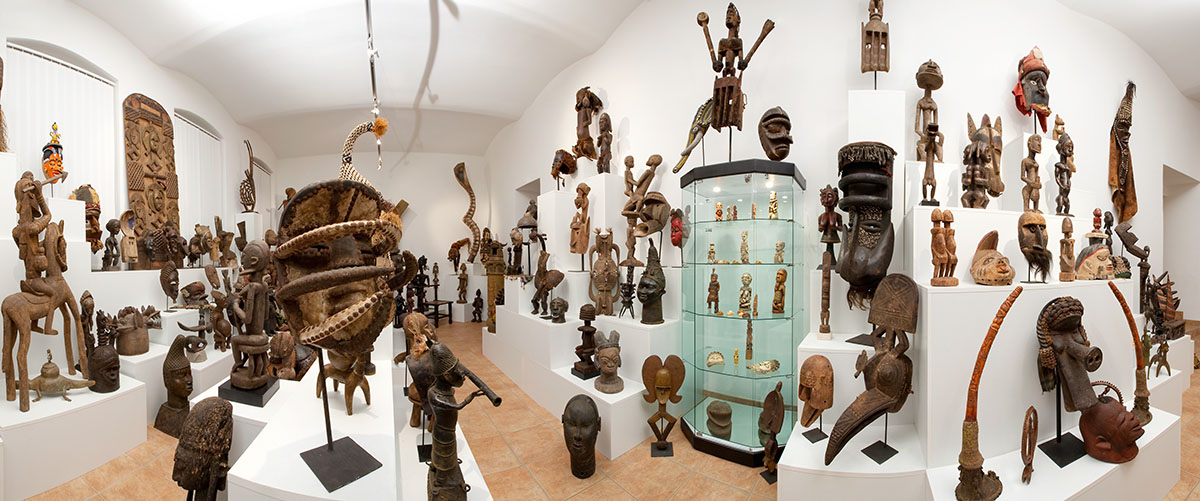Nigeria, a land of rich cultural diversity, boasts a captivating array of artifacts that narrate its fascinating history and traditions. These cultural artifacts hold a profound significance in the hearts of Nigerians, serving as a link between the past and the present. Each Nigerian cultural artifacts is a masterpiece, crafted with meticulous attention to detail, reflecting the artistic brilliance and deep-rooted beliefs of the communities that created them. From the striking terracotta sculptures of the ancient Nok civilization to the intricately woven Adire fabrics that tell tales of generations past, these artifacts are imbued with stories of triumph, sorrow, and celebration.
In every corner of Nigeria, one can witness the profound impact of these artifacts on the daily lives of its people. They are not just static objects but living elements of cultural expression that resonate through music, dance, and rituals. The mesmerizing beats of the talking drum echo across the savannas, while colorful masks and sculptures adorn sacred spaces and commemorate important events. These artifacts have become an integral part of Nigerian identity, fostering a sense of belonging and unity among its diverse communities.
However, the preservation of these precious artifacts is not without challenges. The rapid pace of modernization and the encroachment of urbanization pose significant threats to their survival. Moreover, illegal trafficking and looting continue to erode Nigeria’s cultural heritage, resulting in the loss of invaluable artifacts that belong to the nation’s collective memory.
A Glimpse into Nigeria’s Cultural Treasures
Nigeria, a country steeped in history and cultural diversity, holds within its borders a wealth of artistic treasures that have captivated the world for centuries. These cultural artifacts are not just objects; they are living testaments to the ingenuity and creativity of generations past. From the ancient civilizations that once thrived on this land to the vibrant contemporary expressions, Nigerian cultural artifacts offer a fascinating journey through time and tradition.
At the heart of Nigerian cultural heritage lies a stunning array of pottery and ceramics. The delicate craftsmanship and intricate designs found in these artifacts reveal the artistic prowess of the ancient communities that molded them. Each pottery piece is a story in itself, narrating tales of daily life, religious beliefs, and the cultural values cherished by the people.
Another mesmerizing facet of Nigerian cultural artifacts is the realm of textiles and weaving. The country boasts a rich tradition of textile artistry, with fabrics like Aso Oke and Adire being emblematic of Nigerian culture. The vibrant colors and patterns woven into these fabrics symbolize the diversity and unity that characterize Nigeria as a nation.
Unraveling the Significance of Nigerian Cultural Artifacts
Nigerian cultural artifacts are not merely inanimate objects; they are vessels of history, tradition, and identity, holding profound significance for the nation and its people. Each artifact tells a story of a bygone era, offering insights into the beliefs, customs, and artistic prowess of the communities that shaped Nigeria’s rich cultural tapestry.
At the core of these artifacts lies a deep connection to the past. They serve as tangible links to ancient civilizations and offer a glimpse into the daily lives of our ancestors. Pottery and ceramics, for instance, reveal the culinary practices and domestic rituals of the past, while the patterns woven into textiles portray the aesthetic preferences and social symbolism of bygone eras. These artifacts become gateways to understanding the past, fostering a sense of continuity and legacy.
Moreover, Nigerian cultural artifacts carry spiritual significance and are integral to religious practices and ceremonies. Masks and sculptures, exquisitely crafted by skilled hands, represent deities, ancestors, and spirits. They play a pivotal role in various rituals, invoking blessings, warding off evil, and ensuring harmony with the divine. The spiritual essence of these artifacts intertwines with the very fabric of Nigerian society, infusing its people with a profound sense of cultural belonging.
The Artistic Marvels of Nigerian Pottery and Ceramics
Nigerian pottery and ceramics stand as a testament to the nation’s artistic brilliance and cultural heritage. For centuries, skilled artisans have crafted exquisite pieces that showcase not only their creativity but also the deep-rooted traditions and beliefs of the Nigerian people. These artistic marvels of clay have left an indelible mark on the nation’s cultural identity, reflecting the diversity and ingenuity that define Nigeria.
At the heart of Nigerian pottery lies a profound connection to the earth and its resources. Clay, the primary material used in pottery, is abundant in Nigeria, providing artists with a medium to shape their imagination into reality. The process of transforming raw clay into functional or decorative objects requires patience, precision, and a keen eye for detail.
One of the most remarkable aspects of Nigerian pottery is its functional purpose. From everyday utensils like pots, bowls, and water jars to ornate vases and cooking vessels, these artifacts serve practical needs while also being expressions of artistic finesse. The utilitarian aspect of Nigerian pottery showcases the seamless integration of art into daily life, making it an intrinsic part of the culture.
Adorning Tradition: The Rich Tapestry of Nigerian Textiles and Weaving
Nigeria’s cultural heritage is intricately woven into the vibrant fabrics and textiles that adorn its people and homes. The art of weaving holds a significant place in Nigerian tradition, with each fabric telling a story of identity, history, and artistic excellence. The rich tapestry of Nigerian textiles is a testimony to the nation’s deep-rooted customs, diverse cultural expressions, and creative ingenuity.
At the heart of this rich tradition lies the mastery of weaving techniques. Skilled artisans meticulously create fabrics using a variety of materials, such as cotton, silk, and locally sourced fibers like raffia and bark cloth. Each fabric type carries its unique significance and is often associated with specific regions or ethnic groups within Nigeria.
One of the most iconic Nigerian fabrics is the Aso Oke, a handwoven textile renowned for its intricate patterns and bold colors. Traditionally worn on special occasions like weddings and festivals, the Aso Oke is a symbol of celebration and prestige. The art of weaving Aso Oke has been passed down through generations, ensuring the preservation of this cultural heritage.
Conclusion
Nigerian cultural artifacts stand as enduring testaments to the nation’s rich heritage and artistic brilliance. They weave together the stories of ancient civilizations, traditions, and beliefs that have shaped the identity of Nigeria over the ages. From the intricate pottery of the Nok civilization to the vibrant textiles and masks that enliven contemporary ceremonies, these artifacts form a colorful tapestry that celebrates the diversity and ingenuity of the Nigerian people.
For more information you can visit us: https://culturize.com/
I am Lakshya Verma, a man of diverse interests and talents. By day, I dedicate myself to the field of pharmacy, working tirelessly to improve the well-being of others. However, once my workday comes to an end, you will find me embracing the freedom of the open road on my motorcycle, relishing in the invigorating sensation of the wind rushing through my hair. I have a deep passion for embarking on thrilling adventures, and I have been fortunate enough to explore numerous corners of the globe. Through my travel blog, I take pleasure in sharing my experiences and stories with a wider audience. Furthermore, my love for writing has led me to establish KanilPRwire, an SEO agency that assists brands in expanding their online presence. Whether I am developing life-saving medications or crafting captivating blog posts, I approach each endeavor with unwavering enthusiasm and determination. As a versatile and multi-talented individual, I am living proof that one can merge multiple careers into an extraordinary and fulfilling life.




